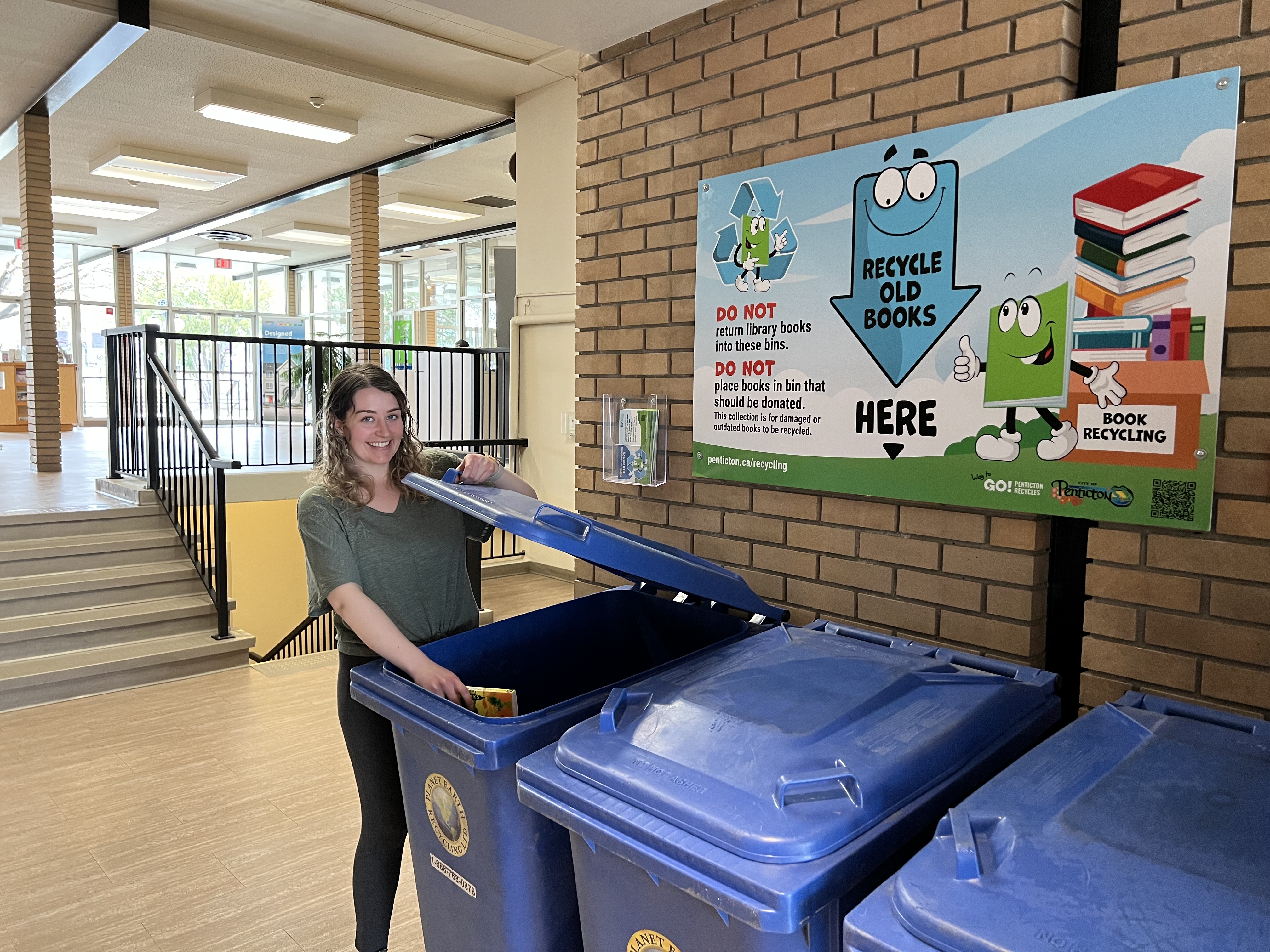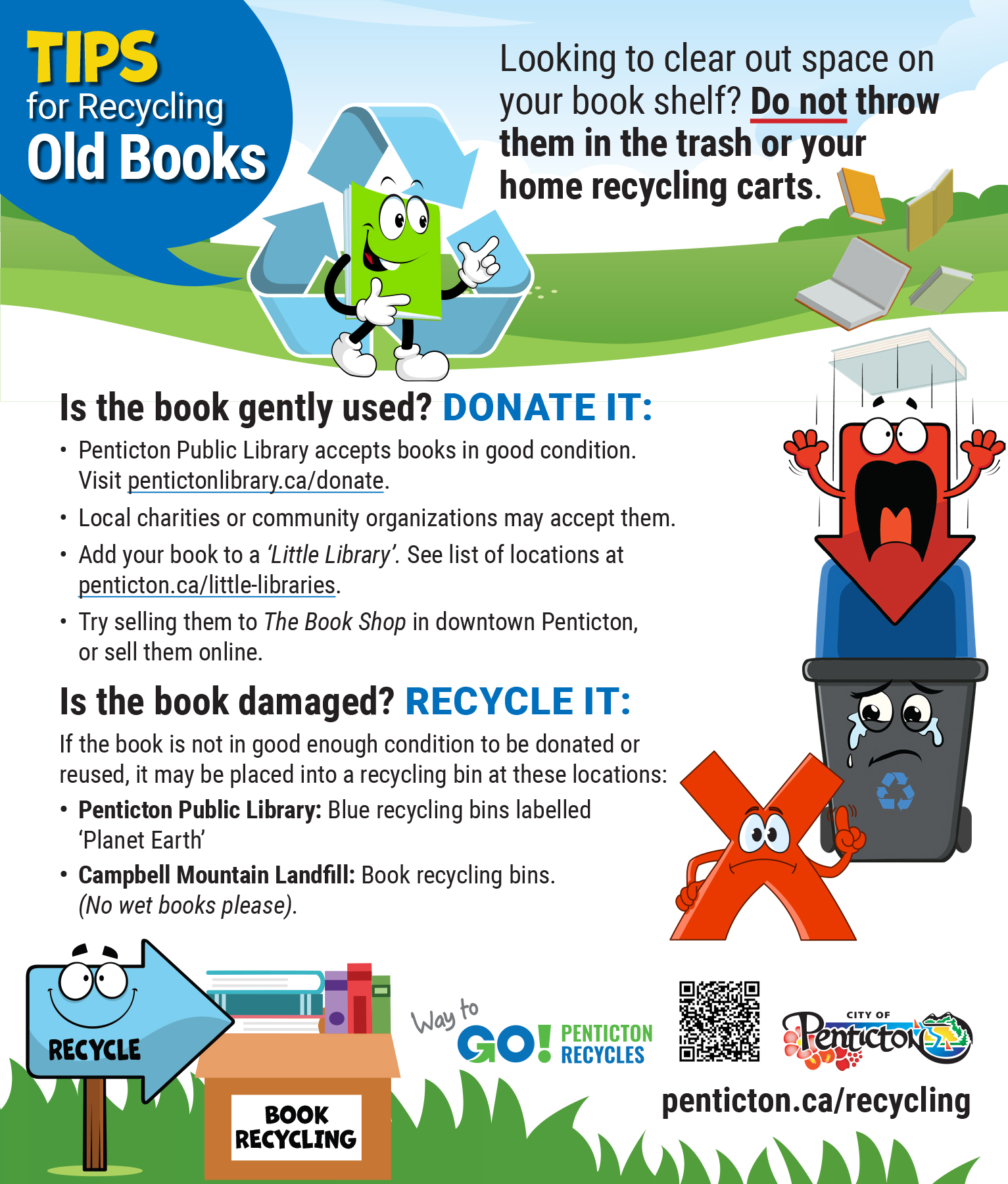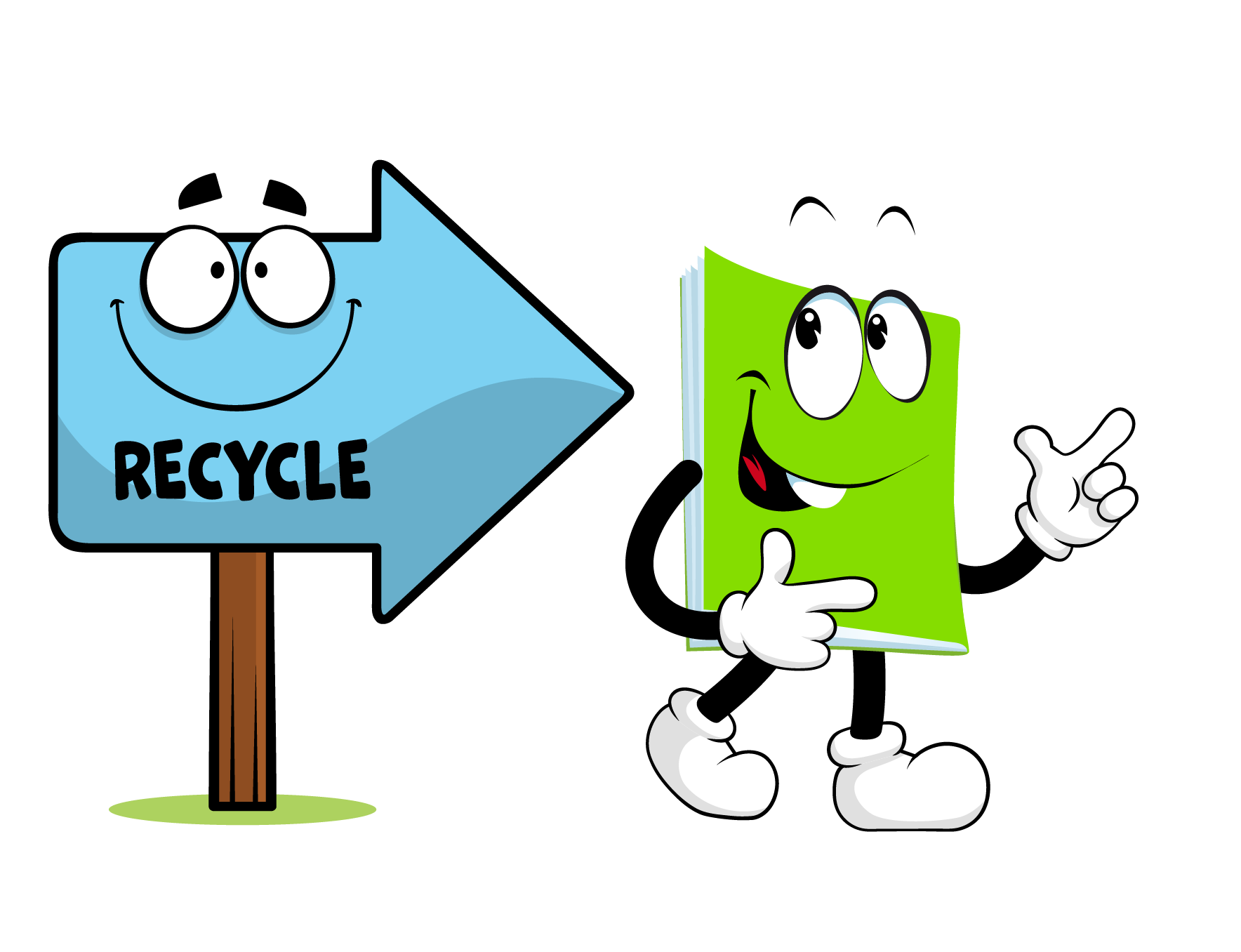Today, with increased digitization, more and more people are clearing out their bookshelves. When it comes to disposing of old or destroyed old books, those potentially weighty tomes fast become a sustainability issue.
Despite this, everyone loves a good story. Weave it into a book about a boy in wizarding school or a cold-hearted scrooge, and that written masterpiece might even be passed around to multiple sets of hands. Nevertheless, even the most well-thumbed novels have a limited shelf life.
This is the story about how a small city confronted a goliath issue with a little innovation and a targeted campaign. In the end, this saved taxpayers from paying significant penalty fees and diverted 51,000 pounds of books from the landfill.
Crackdown on Books
In 2022, the city of Penticton, British Columbia, had a big problem. Its overall recycling contamination rate reached a new height of 13.3%, despite ongoing education campaigns. Recycle BC, the organization that manages residential recycling throughout the province, warned that the city needed to lower the rate to less than 10% by the end of 2023 or face financial penalties.
Given that previous general recycling reminders weren’t moving the needle, Penticton’s communications team realized that if they were going to make an impact, they would have to narrow their focus to one major offender at a time, and hammer home that message.
The first target? Books.
From Good Read to Good Riddance
At the time, there were no convenient locations within the city to recycle books. Recycle BC does not accept or recycle books of any kind — including hard or soft cover — which means residents cannot place them into their residential recycling carts.
However, collection audits revealed that books remained one of the top items mistakenly being added to local carts. These count as contamination and potentially cause an entire batch of recycling to end up in the landfill.
This campaign involved working with Penticton’s sustainability department to provide a new way for residents to recycle old books, launching a pilot project and awareness campaign that was innovative in British Columbia. This required partnering with an independent business to set up dedicated carts at the lobby of the public library and museum, a high-traffic area visited by residents and visitors. It also involved a year-long campaign to educate residents about how to appropriately dispose of old or damaged books.
Get Visual


To simplify the message to people of all ages, the Penticton communications team created a book icon character, which was used across all marketing materials. This included on-site signage above carts at the library, postcards distributed at key locations, a dedicated webpage, posters, bookmarks for school and social media posts. It was important to portray the program in a positive, non-threatening way, striking the right tone with all community members.
Targeting New and Visiting Residents
Penticton has a population of over 38,000 and is a popular summer tourist destination. Like many smaller cities, it has faced significant growth since the pandemic, attracting remote workers and professionals seeking to escape larger cities. In fact, Canadian census data shows that 50% of residents moved in the last five years, demonstrating a need for an education campaign involving local recycling dos and don’ts.
One of the methods used to target this newcomer demographic was including information in a “Welcome Home” pack for new residents, which the communications team handed out for free at City Hall. To reach tourists, the team created recycling cling stickers, brochures and fridge magnets to distribute to Airbnb businesses. It also prepared children’s materials to make presentations to local schools, with handouts for the students to take home.

Given the community’s large retiree demographic, it was important to amplify the message across traditional media, including local newspapers, direct mail via printed newsletter, ads in high-traffic facilities, news coverage on radio and television, as well as social media and email-based announcements to subscribers.
Focus Small for Big Impact
By telling one story at a time, the Penticton communications team was able to isolate one problem issue to achieve maximum impact. This grabbed the attention of residents and brought down the overall contamination rate to an acceptable level of 8% by the end of 2023.
In addition to diverting 51,000 pounds of books from the landfill, the number of books found in recycling was reduced by half, to 0.8%, by the end of 2023. Also, 82.8% of residents who responded to a survey following the campaign stated they were aware that they can’t place books in their home recycling carts and 97.4% responded they are now more likely to recycle their books responsibly. Since this time, other municipalities throughout the province have replicated the program.
following the campaign stated they were aware that they can’t place books in their home recycling carts and 97.4% responded they are now more likely to recycle their books responsibly. Since this time, other municipalities throughout the province have replicated the program.
The End?
Well, not really. For any municipality battling recycling education, or any public awareness issue, the challenges never really end. People move, systems change and expectations grow. To see where this story about books goes, we’ll just have to wait for the next chapter.
Katya IrwinKatya Irwin is a communicator, former journalist and forever traveller. As a communications advisor with the City of Penticton in British Columbia, Canada, she has a passion for promoting and supporting her community.
Irwin is a published author and has an extensive journalism background including editor positions in the U.K., Australia and Canada. She spent 10 years at The Vancouver Sun, western Canada’s largest newsroom, before changing course to communications, completing a graduate program in professional communications at Royal Roads University.
At the City of Penticton, Irwin is responsible for corporate communications and marketing for a portfolio spanning public works and infrastructure, climate and sustainability, parks, events and economic development.